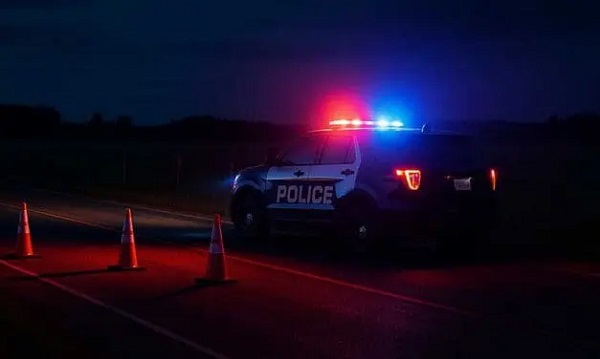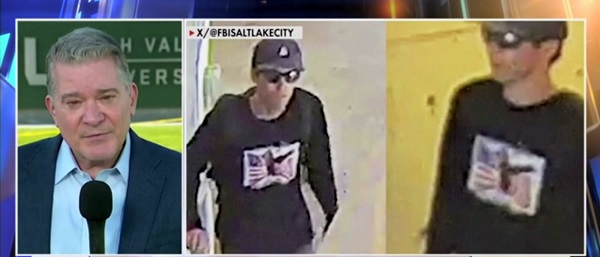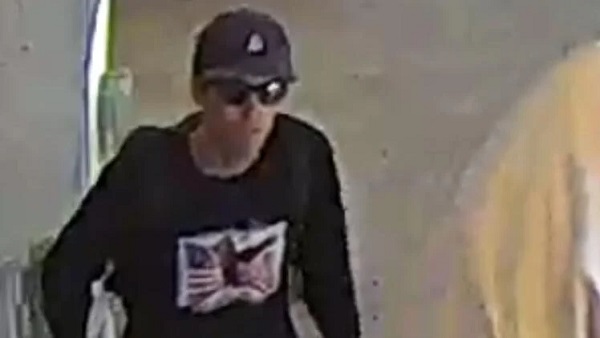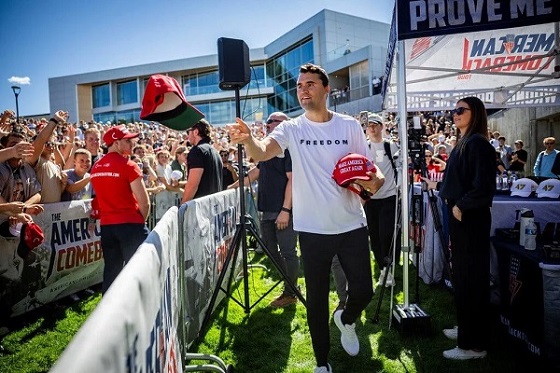COVID-19
Free speech victory: Charges against nurse who opposed vaccine mandates defeated
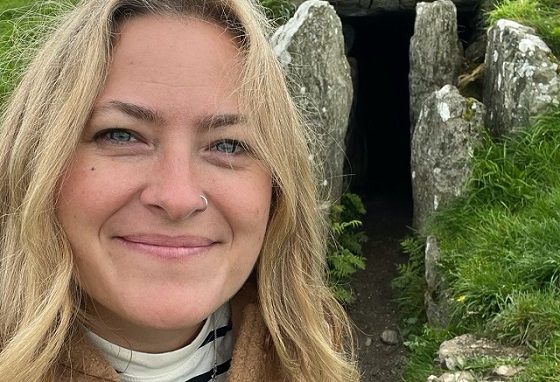
News release from the Justice Centre for Constitutional Freedom
The Justice Centre is pleased to announce that the College of Registered Nurses of Saskatchewan (CRNS) has ruled in favour of nurse Leah McInnes following an October and November 2023 disciplinary hearing. The Investigation Committee of the CRNS had charged Ms. McInnes with spreading “misinformation” because she had voiced her concerns about vaccine mandates. The outcome vindicates her right to professionally advocate for medical ethics and evidence-based health policy.“This is a significant victory for free expression and democratic participation. Nurses, doctors, psychologists, teachers, lawyers, engineers and all Canadians who work in a regulated profession have the freedom to advocate for their beliefs and should not face threats from their own professional association or professional regulator,” stated John Carpay, President of the Justice Centre. Ms. McInnes had been charged by the CRNS’s Investigation Committee, which investigates and prosecutes professional misconduct complaints, for her social media advocacy and for protesting vaccine mandates. The Investigation Committee’s broad allegation against Ms. McInnes was that her advocacy, including her use of the common term “vaccine mandate,” amounted to “misinformation.” Ms. McInnes is a mother of two and has been a Registered Nurse in Saskatchewan since 2013. Ms. McInnes’s advocacy was measured and balanced. She had supported vaccines as an important tool in Covid-management efforts while also pointing to emerging scientific evidence regarding viral loads and transmission, which showed that Covid vaccines did not eliminate transmission. Ms. McInnes opposed vaccine mandates as a violation of basic ethical principles of autonomy and informed and voluntary consent of each and every patient. When Covid vaccines were introduced and voluntarily received in the spring and summer of 2021, the question of vaccine mandates was publicly debated across Canada. On June 30, 2021, the Saskatchewan Government indicated that it would not enforce a vaccine mandate because doing so would pose a “potential violation of health information privacy,” and, later, that it would “infringe on people’s personal rights.” The Saskatchewan Government also stated that a vaccine mandate for provincial employees was not being considered and, on September 10, 2021, rejected a proof-of-vaccination system, stating that mandates create “two classes of citizens based on… vaccination status,” and would be a “divisive path for a government to take.” Similar sentiments were echoed by Alberta’s Jason Kenney and Ontario’s Doug Ford, who claimed it would lead to a “split society.”Around the same time, the Saskatchewan Union of Nurses was calling for the “mandatory immunization” of all healthcare workers–a demand repeated by many, including Saskatchewan NDP leader Ryan Meili and a group of Saskatchewan Health Authority’s Medical Health Officers. Guided by her conscience and professional ethics, notably, her respect for bodily autonomy and informed consent, Ms. McInnes vocally opposed vaccine mandates. She protested vaccine mandates by holding a sign that read, “RN against Mandates and Vax Passports.” According to the Investigation Committee of the College, this sign amounted to “misinformation” with an intention to deceive. Shortly after Ms. McInnes’s advocacy began, the Saskatchewan Government changed course and imposed a vaccine mandate.

A fellow Registered Nurse filed a complaint, calling Ms. McInnes, “Leah aka anti-vaxxer.”The complaint resulted in charges, including the charge that Ms. McInnes knowingly spread misinformation on the basis that, purportedly, no “vaccination mandates” had ever been implemented. It appeared that, according to the Investigation Committee, only a policy of “restrain and vaccinate” qualified as a “vaccine mandate.”After an initial investigation, the Investigation Committee proposed an agreement that would have Ms. McInnes admit to professional misconduct, but she rejected this offer, choosing instead to stand up for her professional and Charter rights. The Investigation Committee charged her on March 28, 2023, and filed a Notice of Hearing, the details of which were later expanded after counsel for Ms. McInnes demanded clarity from the College as to what exactly the College alleged to be “misinformation”, “disinformation” or “misleading” information.Ms. McInnes’s expert witness, former Chief Medical Officer of Health of Ontario Dr. Richard Schabas, confirmed that the term “vaccine mandate” had, in the medical profession, no special meaning beyond its meaning in everyday language. In all contexts, “vaccine mandate” refers to a requirement to either get injected or lose certain rights or freedoms. “Ms. McInnes used the term ‘vaccine mandate’ just as nearly everyone else did in public discourse, including the Toronto Star, the CBC, CTV, the Saskatoon Star Phoenix, CKOM, the Saskatchewan Union of Nurses, academia, Occupational Health and Safety, Saskatchewan Health Authority, the Saskatchewan NDP, and governments,” stated Andre Memauri, co-counsel for Ms. McInnes. “But the Investigation Committee nevertheless forced Ms. McInnes through this painful process, causing her needless grief,” continued Memauri.The Investigation Committee also alleged that Ms. McInnes knowingly spread misinformation about Covid vaccines. Ms. McInnes had posted that vaccines did not provide sterilizing immunity, i.e., that vaccinated people could contract and transmit the virus. During the hearings that took place in 2023, experts, including the Investigation Committee’s own expert, testified that vaccines do not provide sterilizing immunity, vindicating Ms. McInnes. Co-counsel to Ms. McInnes, Glenn Blackett, says, “It’s chilling to recall that this vitally important fact, that the Covid vaccine did not provide sterilizing immunity, was broadly censored while Canadians were supposedly debating the wisdom of vaccine mandates. Poor information makes for poor decisions.”Thankfully for Ms. McInnes and all Canadians who depend on an informed and ethical nursing profession, the Discipline Committee of the College accepted the evidence presented to them and found that Ms. McInnes had, in no way, misinformed the public.Mr. Blackett continued, “This is a hugely important decision, not just for Ms. McInnes, who embodies the ‘moral courage’ Canadians should expect of all health professionals. It is perhaps most important for upholding a nurse’s right to voice ethical and scientific dissent and to participate in democratic discourse. The importance of professional freedom of speech and conscience can hardly be overstated. Science, ethics and democracy simply do not operate without freedom to think and speak. If you can’t trust a professional, be it a nurse, doctor or lawyer, to tell you what they think is true, you can’t trust them at all.”As for Ms. McInnes, she sees this as a victory for free speech in the medical community which will only lead to better outcomes. “I very much value the right of my colleagues to express opinions different than mine and support them in their endeavours to seek change in healthcare and government policy they perceive to be in the public interest. I’m grateful that the CRNS Discipline Committee recognized my right to do the same, as it’s only in the collection of our opinions that the public truly benefits,” she stated. After hearings and submissions in October and November 2023, the College’s Discipline Committee published their decision on January 12, 2024, dismissing all charges against Ms. McInnes. In their decision, the Discipline Committee stated that the case against Ms. McInnes should not have even proceeded to a hearing.
COVID-19
Freedom Convoy leader slams Canadian gov’t agency for praising its treatment of protesters

From LifeSiteNews
Tamara Lich begs to differ with the Department of Public Safety’s claim that it acted with high ‘moral’ standards during the Freedom Convoy protests.
Freedom Convoy leader Tamara Lich is calling out Canada’s Department of Public Safety for “lies” after it boasted via an internal audit that it acted with a high “moral” standard in dealing with the 2022 protest against COVID mandates.
Lich made the comments on X earlier this week regarding a recent Department of Public Safety internal audit that heaped praise on itself for having “ethics” as well as a “moral compass” in dealing with the 2022 protesters.
The reality is that the self-boasting report comes after it was made known the Department of Public Safety had a role in spreading false claims that the Freedom Convoy was violent and was somehow funded by Russia.
As reported by Blacklock’s Reporter, the audit did not mention the false claims it made against the Freedom Convoy, which were used to allow then-Prime Minister Justin Trudeau to impose the Emergencies Act (EA) to clear out the protesters.
Indeed, in 2023, as reported by LifeSiteNews, disclosed records showed that Canada’s Department of Public Safety fabricated a security bulletin that claimed the Freedom Convoy protesters had plundered federal office buildings in an apparent attempt to discredit the movement.
The fake bulletin was sent out on January 28, 2022, at 3:54 p.m. and read: “We have received confirmation that protesters have started to enter office buildings in the Ottawa downtown core and are allegedly causing damage.”
The department’s recent boasting about itself, however, claimed that “(v)alues and ethics serve as a moral compass, guiding and establishing benchmarks for behaviour, decisions, actions and culture within organizations, including the public sector.”
“Federal public servants have a duty to preserve public trust and uphold a professional, non-partisan public service,” the internal audit noted.
Lich: Trudeau officials spread ‘lies, misinformation, disinformation, and division nationwide’
Regarding the recent audit, Lich noted that the Public Order Emergency Commission (POEC) hearing, which was tasked with investigating Trudeau’s use of the EA to crush the Freedom Convoy in mid-February 2022, “showed no violence or threats to national security during the 2022 Freedom Convoy.”
“It revealed a cycle between media and law enforcement, each repeating unverified talking points from the other. Despite widespread support along highways, overpasses, and communities, the CBC and other taxpayer-funded media missed an opportunity to unite Canadians,” she wrote.
Lich believes that Trudeau’s governmental departments “instead” spread “lies, misinformation, disinformation, and division nationwide.”
“Consequently, some of us face regular death threats, hate mail, threats of violence, and public harassment,” she wrote.
“Thankfully, we receive much more love and support, but the damage is done, which is exactly what they were aiming for.”
The sentencing trial for Lich and fellow Freedom Convoy leader Chris Barber took place in July at a hearing. Earlier this year, they were found guilty of mischief in their roles in the 2022 convoy.
As reported by LifeSiteNews, Lich revealed that the Canadian federal government is looking to put her in jail for no less than seven years and Barber for eight years.
A sentencing hearing has been scheduled in their case for October 7 in Ottawa.
The Freedom Convoy protest took place in early 2022 in Ottawa and featured thousands of Canadians calling for an end to COVID mandates.
In response, Trudeau’s federal government enacted the Emergencies Act on February 14, 2022, to shut down the popular movement.
Trudeau had disparaged unvaccinated Canadians, saying those opposing his measures were of a “small, fringe minority” who hold “unacceptable views” and do not “represent the views of Canadians who have been there for each other.”
Trudeau revoked the EA on February 23 after the protesters had been cleared out.
COVID-19
Why FDA Was Right To Say No To COVID-19 Vaccines For Healthy Kids
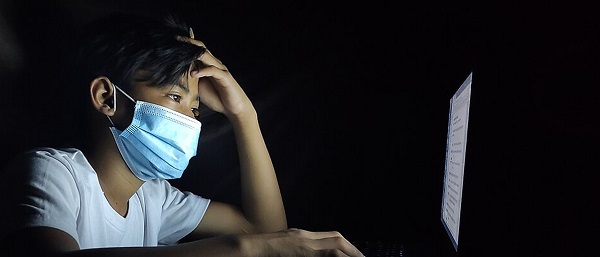

From the Daily Caller News Foundation
The FDA’s decision not to authorize COVID-19 vaccines for healthy children has drawn criticism. Some argue: If parents want the shot, why not let them get it for their kids? That argument misunderstands what FDA authorization means — and why it exists.
The FDA often approves drugs that carry risks or have imperfect evidence of effectiveness. This is a tradeoff we sometimes accept for people who are ill: when someone is already sick, the alternative is untreated disease. Vaccines are different. They are given to millions of healthy children. This requires a higher standard, not just evidence for safety and immune response, but clear, durable clinical effectiveness. Approval for optional use isn’t neutral; once the FDA authorizes a vaccine, it carries the full weight of institutional endorsement.
Measles provides an example for how the FDA approaches vaccine approvals. Before the measles vaccine was introduced in 1963, the U.S. saw 3 to 4 million infections, ~48,000 hospitalizations, ~1,000 cases of encephalitis, and 400-500 deaths each year. Infants bore the brunt of the most severe outcomes.
Dear Readers:
As a nonprofit, we are dependent on the generosity of our readers.
Please consider making a small donation of any amount here.
Thank you!
That created a natural instinct: why not vaccinate the youngest and most vulnerable? The initial measles rollout was to 9-month-olds, but within two years that timing was changed to children who were at least 1 year of age. This was not because younger babies were not at risk or that the vaccine was riskier for them, but because it just didn’t work well enough to justify a universal campaign.
The knowledge of the particular risk younger infants face has led to continued research on the effectiveness of measles vaccination in that group. A 2023 trial of the combined measles/mumps/rubella (MMR) vaccine in infants aged 5-7 months, and subsequent safety and immune studies in 2024 and 2025, produced consistent results—safety and the ability to generate antibodies were demonstrated, but a durable response and protection against hospitalization were not.
That is why the FDA does not approve MMR for routine use in healthy children younger than 12 months of age. It is also precisely why getting back to herd immunity for measles is so essential: the youngest infants can only be protected if the rest of us are immunized.
What’s the evidence for COVID-19 vaccination in infants and children? It generates robust antibodies, often higher than in adults. But clinical benefits are modest, short-lived, and inconsistent. It is nowhere near the level of proof U.S. regulators require before making a vaccine universally available to healthy kids.
Some argue that even if benefits are modest, parents and pediatricians should be free to choose. But FDA authorization is not about personal preference; it is a stamp of approval for more than 70 million healthy children. Statistical safety is not enough. At that scale, even rare risks mean real harm to real children. COVID-19 vaccines were originally authorized in the hope that immune responses would translate into population-level benefits. For healthy children, the initial optimism sparked by early encouraging signals has steadily given way to three years of disappointing clinical results.
The lessons from measles are clear: safe but minimally effective isn’t enough. We don’t authorize MMR for 5-month-olds, even to parents who might want their children to get it. COVID-19 vaccines for healthy children should be judged similarly. This is not because there is a lack of any benefit, but because it doesn’t rise to the level we use for other vaccines. Only if and when proof of clinical effectiveness becomes available should authorization be reconsidered. At this time, the FDA is right to say no.
Monique Yohanan, MD, MPH, is a senior fellow at Independent Women, a physician executive and healthcare innovation leader, and Chief Medical Officer at Adia Health.
-

 Frontier Centre for Public Policy14 hours ago
Frontier Centre for Public Policy14 hours agoBloodvein Blockade Puts Public Land Rights At Risk
-

 Business1 day ago
Business1 day agoDeportations causing delays in US construction industry
-

 Business2 days ago
Business2 days agoRed tape is killing Canadian housing affordability
-

 Health2 days ago
Health2 days agoMAiD should not be a response to depression
-

 Alberta19 hours ago
Alberta19 hours agoParents group blasts Alberta government for weakening sexually explicit school book ban
-

 Crime1 day ago
Crime1 day agoCanadian teacher showed Charlie Kirk assassination video to young students, said he deserved to die
-
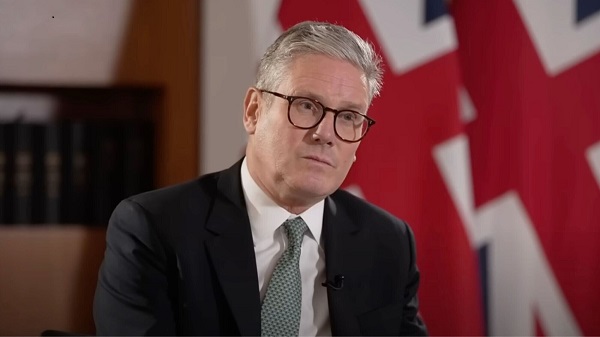
 International2 days ago
International2 days agoTrump to Confront Starmer Over UK Free Speech Laws During State Visit
-

 MAiD2 days ago
MAiD2 days agoFamous Canadian children’s author Robert Munsch says he plans to die by euthanasia
